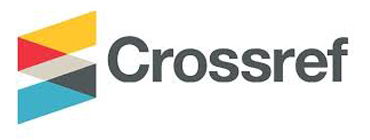UTILIZING ROSETTA STONE APPLICATION TO IMPROVE STUDENTS’ VOCABULARY MASTERY AT THE TENTH GRADE OF SWASTA TUNAS BANGSA SENIOR HIGH SCHOOL
Abstract
Language skills can be obtained by mastering vocabulary first. With that, this study will use the application as a medium for learning vocabulary. So that mastery can grow optimally with learning methods like this. This is also related to the nature of the environment which lacks insight into the media (smartphone) and also the limitations of something that is always unconditional (economic). This study aims to make it easier for students to improve vocabulary mastery so that it is easy to learn and understand. The subjects of this study were students of class X- IPA 1 Tunas Bangsa Private High School, the sample used was 32 students. The method used in this research is Classroom Action which is carried out in two cycles. Data were analyzed qualitatively and quantitatively. Data were analyzed qualitatively and quantitatively. In qualitative data obtained through observation activities. Meanwhile, quantitative data were obtained through pre-test and post- test. Based on quantitative data, the use of the Rosetta Stone application can improve vocabulary mastery skills in students. This can be seen from the pre-test and post-test results. In the pre-test, the percentage of student scores was at 59.65%. Then in the first post-test, the percentage of student scores was at 67.84%. Whereas in the second post-test the percentage of student scores was at 79.53%. From the data found, we can see that the Rosetta Stone application is proven to be able to significantly improve students' vocabulary mastery.
Full Text:
PDFReferences
Alqahtani, M. (2015). The Importance of Vocabulary in Language Leearning and How to be Taught. International Journal of Teaching and Education. Vol. III, (3).
Evelyn Hatch and Cheryl Brown.(2001). Vocabulary, Semantic and Language Education, Cambridge: Cambridge University Press, P,
Hatch, E. and Cheryl, B. (2001) Vocabulary, Semantic and Language Education, Cambridge: Cambridge University Press.
Hanif. (2010). Using rosetta stone software as media in English vocabulary (an experimental study at SDN No. 02 Lhoksukon). English Lecturer of Economics and Business Faculty. Malikussaleh University.
Harmer, J. (2001). The practice of English language teaching(3rd ed.). London: Longman.
Jeremy Harmer.(1991). The Practice of English Language Teaching. New York: Longman, p. 23.
Harmer, J. (2001). The practice of English language teaching(3rd ed.). London: Longman.
Hidayati, S. (2007). The Analysis of Students’ Ability in Using Derivation Vocabulary. Tadris Bahasa Inggris of Tarbiyah Department of STAIN Bengkulu. Abdulhak, I. dan Suproyogi, U. (2012), Penelitian tindakan dalam pendidikan nonformal. Jakarta: Raja Grafindo Persada, p. 161.
Keraf, Gorys. Komposisi. (1998). Ende: Nusa Indah, P.17
Madsen, H. S. (1983). Technique in Testing. New York: Oxford UniversityPress. USA.
Marianne Celc e-Murcia, (2001), Teaching English as a second or foreign language, USA: Heinle & Heinle.
Refbacks
- There are currently no refbacks.

This work is licensed under a Creative Commons Attribution-NonCommercial-ShareAlike 4.0 International License.
INDEXING
Bright Vision by UIN Sumatera Utara Medan is licensed under a Creative Commons Attribution-NonCommercial-ShareAlike 4.0 International License.
Based on a work at http://jurnaltarbiyah.uinsu.ac.id/index.php/brightvision.









